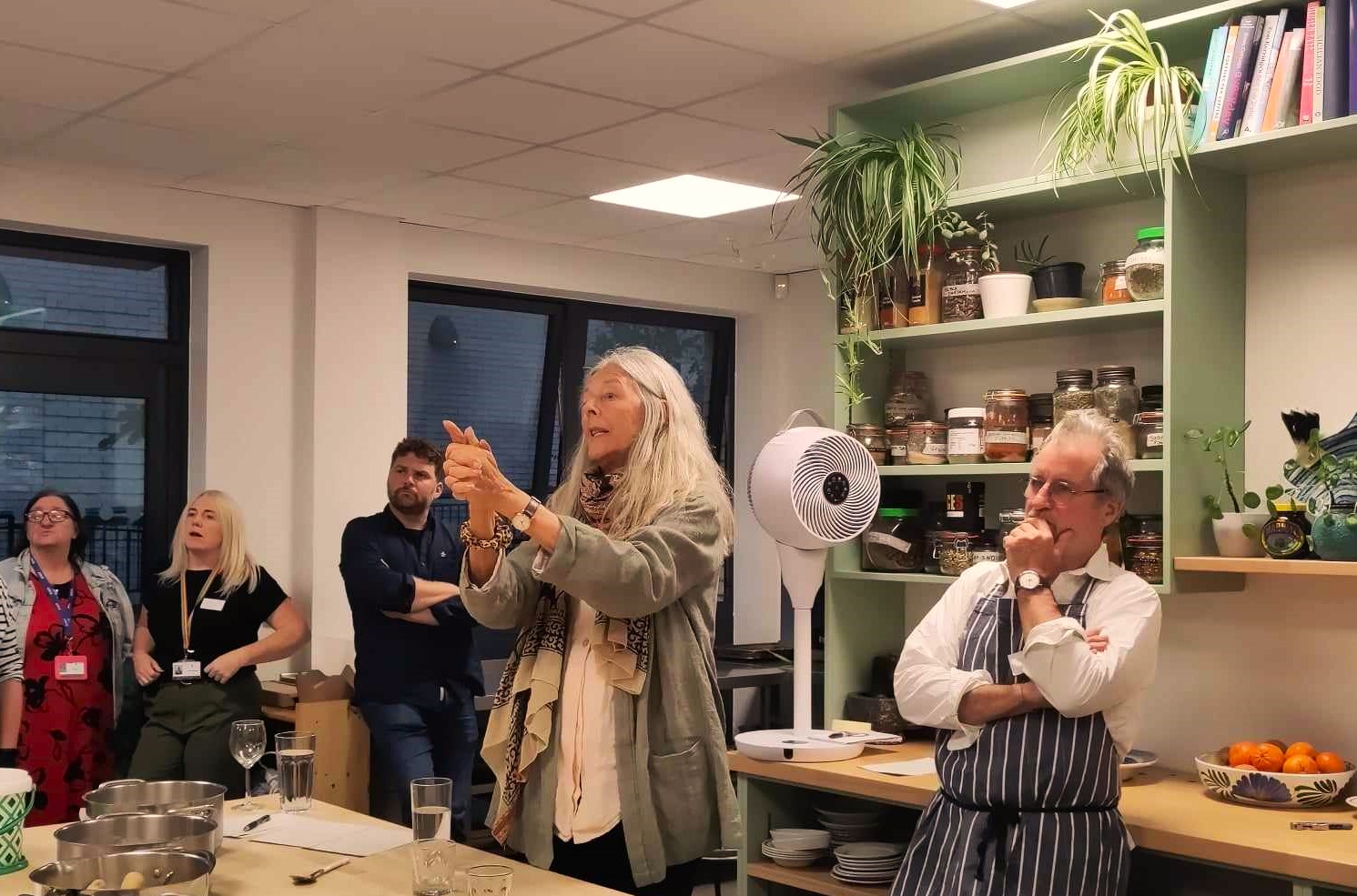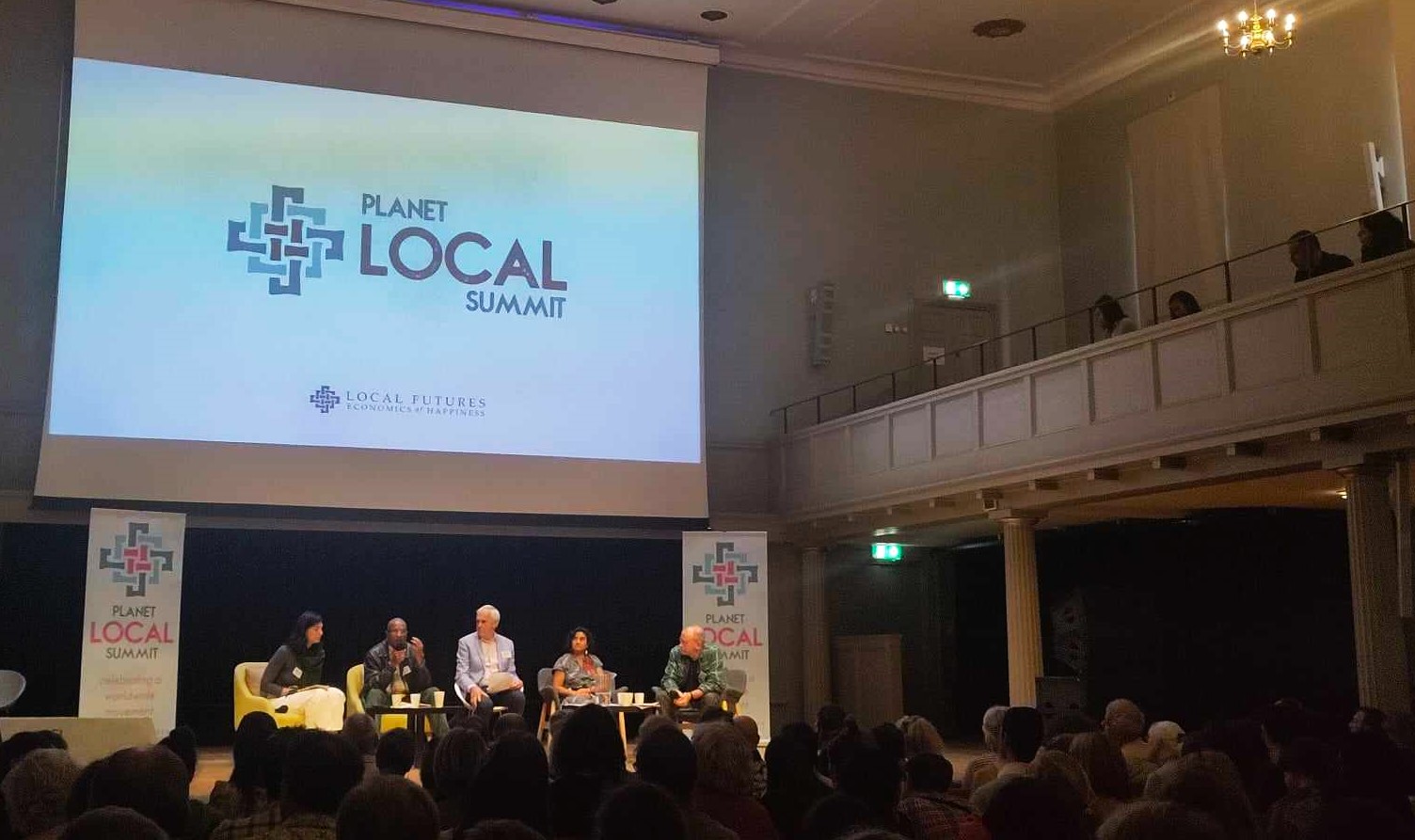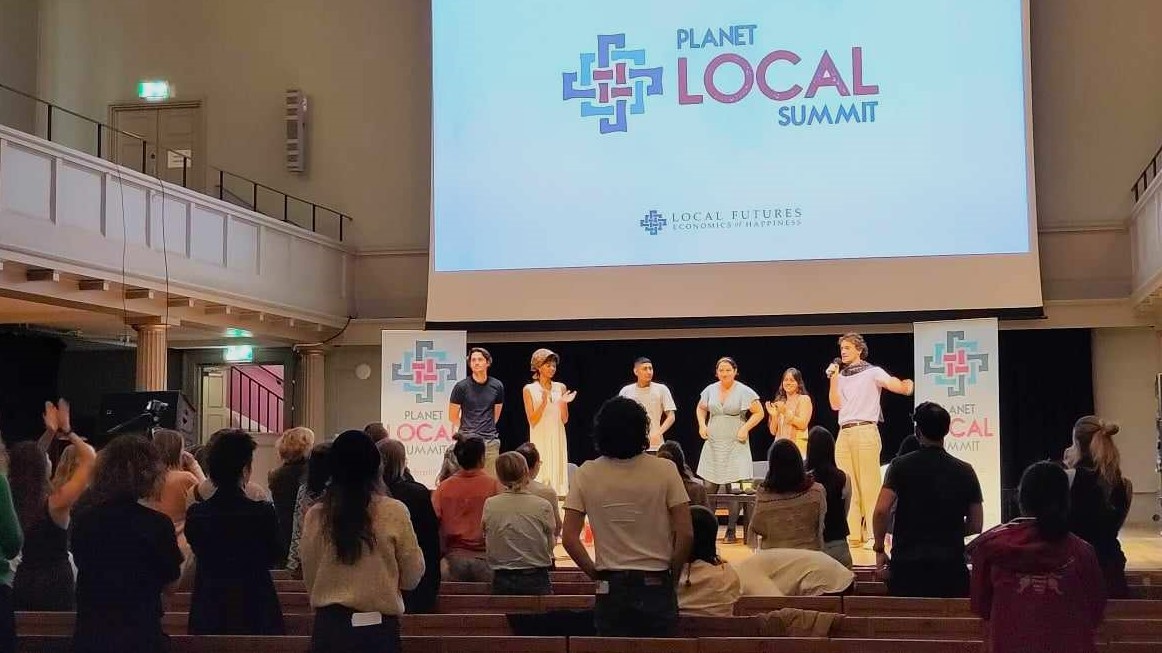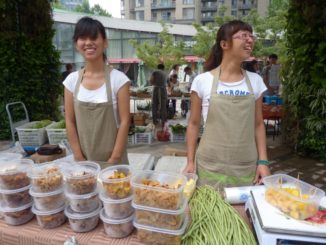
Next month in Marburg, Germany, ARC2020 and partners will host the European Action Gathering for Sustainable Food Systems, spotlighting multi-level, collaborative and community-led action as a response to inertia at EU level.
Meanwhile in Bristol, England, on the first weekend of October, local food was a focus of the Planet Local Summit, a global gathering that served to highlight the unparalleled value of the grassroots. The ‘largest gathering of its kind’, it was a rare in-person opportunity for grassroots actors worldwide to learn, share and celebrate together, in a showing of solidarity for the movement.
Global network Local Futures, organiser of the three-day event, calls for a gravitation to localised systems to support local economies and sustainable communities. It’s about “shifting power from transnational corporations to genuinely democratic institutions, while simultaneously building up regional self-reliance.”
Ursula Billington reports from Bristol.
Global network, Local Futures
Local Futures has decades-old links with Bristol. In the 1980s founder Helena Norberg-Hodge was dividing her time between the city and Ladakh, India, where she witnessed the devastation industrialisation was wreaking on local, small-scale farmers.
Corporate powers were increasing their grip on food and Helena was moved to act. From her Bristol base she began promoting the benefits of localised systems to improve farmer and community wellbeing both at home and abroad.
As, first, the International Society for Ecology & Culture, and then Local Futures, she set up Bristol’s first community supported agriculture (CSA) scheme, and the UK’s first farmers’ market in nearby Bath – laying the foundation for future work establishing markets worldwide, from Japan to Los Angeles to Argentina.
A local food roadshow brought consumers and producers together; groundbreaking conferences featured Vandana Shiva, Wendell Berry, Jonathan Dimbleby and more; and Local Futures published reports on ‘rethinking industrial agriculture’ and ‘the economics of happiness’.

So it was fitting that the Planet Local Summit should take place in the city that today builds on that legacy, earning Gold Sustainable Food City status for its growing local food and farming movement.
And, while the jam-packed programme encompassed international trade, education, law-breaking, nature-based economies and reconfiguring climate change, it so often landed back on one central theme: food.
At a reception hosted by the Square Food Foundation, a food justice charity set up by chef Barny Houghton, Helena explained why: “This is, from our point of view, the way we’re going to save the world – with local food economies worldwide,” she said.
“The global food system is the main driver of climate change. If you want to do something, and do it now, support local food systems.”
Barny’s delicious spread paid testament to the idea and made attendees feel good about it. Gesturing to the local and organic roasted veg, fresh focaccia and potatoes of four varieties, he said: “This is not playing games. This is serious stuff. What if the UK’s 32,000 schools transitioned to sustainable foods?”
Satish Kumar, founder of Schumacher College and Editor Emeritus of Resurgence & Ecologist, responded: “No school is a good school unless it has a garden.”

‘The power is in collective change’
Later in the summit, figures from the world of localised agriculture were brought together to debate the movement’s progress and challenges.
Patrick Holden, Sustainable Food Trust founder and organic dairy farmer posed questions for Jyoti Fernandes of the Landworkers Alliance union for UK small-scale producers, Margarita Barcena of A Growing Culture and small farmers Chris Smaje (England) and Nelson Mudzingwa (Zimbabwe).
The urgent need for transition from an industrialised system was compounded by Nelson’s observation that, while food is celebrated daily by every human on the planet, producers in the global south remain the poorest of the poor. “Corporates have captured the entire value chain,” he said.
The panel touched on the barriers to change, namely that the system is fundamentally pitted against small producers; but there was much more focus on solutions. United action, holding government to account, telling new and compelling stories, and showcasing the voices of the youth, workers and indigenous people were highlighted.
Jyoti referred to the farmers’ protest in India, during which 250 million farmers successfully mobilised against damaging agricultural reform, saying, “Society can be transformed into something so exciting by working together collectively. The power is in collective change.”
Chris Smaje suggested we need to reconsider what change means. “We don’t need a revolution in food systems – that means biotech. We just need to do what we know how to do, locally – garden and grow food,” he said.
“It’s on all of us to take responsibility for food in our communities – and to do it collectively.”

‘Creating a more beautiful reality for everyone’
The summit’s programme lit up with luminaries such as American orator Charles Eisenstein, Roger Hallam (Extinction Rebellion), Zac Goldsmith (UK House of Lords), Rupert Read (Climate Majority Project), Rob Hopkins (Transition Towns) and de-educationist Manish Jain.
Key notes reflected on the significance of limiting corporate power over governments, the changing face of localism depending on country, culture and community, and local futures as crucial to resilience.
But it was the youth contingent that shone the brightest.
A panel of young activists responded to deep and difficult questions on ‘inheriting a world in crisis’ with eloquence, sensitivity, insight and wisdom. These rising stars of environmentalism accept the lived reality of eco-anxiety and uncertain futures, yet continue to work actively for a better world.
It was an inspiring session, met with a standing ovation from the room.
Ele Saltmarsh, representing FLAME, the Landworkers Alliance youth branch, said community gatherings like Planet Local are vital, given the overwhelming challenge of fighting to change a system stacked against you. “We recognise the importance of showing ourselves some kindness as a community,” she said. “We need to get together to have fun, reduce stress and avoid burnout.”
Filmmaker Jack Harries explained how he has adapted to living through a time of ecological emergency. “Being angry all the time isn’t good for you,” he said. “It takes a lot of emotional labour.
“I no longer have hope we’ll solve this thing – I now find my hope in communities.”
Poppy Okotcha, an ecological grower and writer based in England’s southwest, also centred on relationships and community-building as essential for positive systems change.
“This movement is about creating a more beautiful reality for everyone,” she said. “Demonstrate the beauty of an alternative and we’ll bring people along.
“Ignite, spark, plant a seed in people’s reality – it will ripple out.”
More from the UK
Bristol Bites Back | Fruits & Roots of Radical Resilience in South-West England
Upland Farmers Face Harsh Realities in Post-Brexit England | Part 1
Upland Farmers Face Harsh Realities in Post-Brexit England – Part 2
Post-Brexit Farm Policy – Outlook Across Northern Ireland, Scotland and Wales
“Faster than NASA” – How a Community Broadband Outfit Turbo-Charged Northern England’s Countryside
More on local food
A Sustainable Food Systems Law – Important for People & Planet, Stalled by the Commission
France | Democratising Food Policy – Tweaking The Financial Toolbox
Ernährungsrat: The democratic potential of Food Policy Councils in Germany
Feeding Ourselves 2023 – Diversified Diversification in Action
Cultivating The Future Together – ARC’s Rural Resilience Gathering in France
Rural Europe Takes Action | A Shared Space for Food Transition
Foodie localism loves farming in theory, but not in practice
Rural Europe Takes Action | CSA and the Building of a Food Commons





